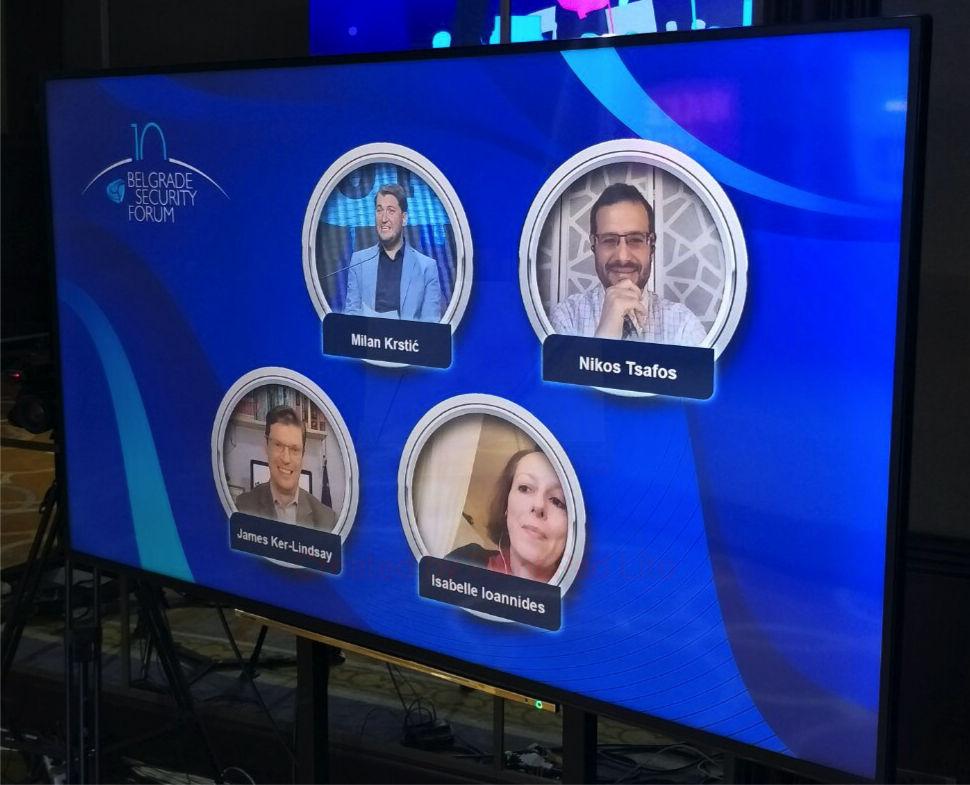Eastern Mediterranean – Stable Instability
General discussion at this panel was about growing tensions in region of Eastern Mediterranean and how they are being influenced by findings of energy resources in previous years and what is the role of great powers such as the US, the EU countries and Russia. Speakers agreed that newly found energy resources are not sufficient for their wider impact on broader European or global level, but could be a game changer for the region. There was a discussion whether energy will raise tensions between regional countries or will it bring them closer and push them towards more cooperation.
Nikos Tsafos, Center for Strategic and International Studies, said that he was sceptic about the region uniting over the energy issue and that it would bring them to profit and peace. From his experience, the question of energy is just one smaller question which is dependable on the wider international relations between nations; if they are good – the relations over energy and its use will also function.
This is not a dispute about energy and resources. It is clear whom they belong to, but it is more broader issue which should be divided into smaller sections and then slowly resolved.
For Tsafos open questions are who will have legislative power and decision making power in Cyprus, and also Turkey’s claim for one small Greek island and also some bigger ones such as Crete and Rhodes.
Isabelle Ioannidies, Free University of Brussels, also pointed that Cyprus is actually key question for the region, rather than recent discovery of natural gas. She stressed that it is very hard to find a pleasing framework for solving Cyprus issue, since the fact that Republic of Cyprus is not recognized by Turkey, which in her opinion should be one of starting points for discussion. Then she noted that sides tried to resolve problem first under the NATO’s auspices, however not much effort was put since Cyprus is not a member. On the other hand, Turkey is not an EU member state, so the discussion under EU framework did not fit well to all sides. Thus, the only actor which still has a role in this frozen conflict is the United Nations, however, in her perspective there was not much hope for a quick and stable solution.
Panel also reflected on roles of Russia and the US in the region of Eastern Mediterranean and its similarities with the approach to the Balkans. James Ker Lindsay, London School of Economics and Political Science, said that the US might have an interest to quickly resolve two long term issues – Kosovo and Cyprus, so that they could ‘put Russia outside of the game’ and significantly decrease its role in the UN Security Council.
He agreed that there were some similarities in the approach towards the Eastern Mediterranean and the Western Balkans, especially by the US to both regions.
However, even if it looks that the armed conflict is possible, both Greece and Turkey are actually very careful when it comes to the use of force and despite the constant nervousness in the region it seems unlikely that it will escalate.
Ending point of the panel was that status quo was most likely to remain. All sides have tools which they could use if need be and some balance seem to be in place.








